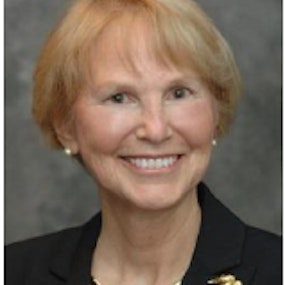ROBERT JOHNSON:
This is Public Health Review Morning Edition for Wednesday, June 7, 2023. I'm Robert Johnson. Now, today's news from the Association of State and Territorial Health Officials.
ANNIE EVANS:
Every public health agency serves people with disabilities so all public health programs must be disability inclusive.
ROBERT JOHNSON:
ASTHO's Annie Evans writes about disability inclusion in health agencies for the July/August edition of the Journal of Public Health Management and Practice.
ANNIE EVANS:
I think at its core, disability inclusion is what's right. And that's because people with disabilities have experienced barriers to health and health care. These systems have done them harms in the past, and we have to acknowledge that as we work to better include them in the future. Disability inclusion is really a critical step in health equity and for demonstrating a commitment to that, we have to be committed to serving this community as well.
ROBERT JOHNSON:
Evans outlines a few easy steps agencies can take right away.
ANNIE EVANS:
The first is to read this article. That's an easy one. The second is to check out access other resources on disability inclusion, we have a great infographic called '10 Essential Questions for Disability Inclusion in Health Agencies' that lays out a number of different questions that folks can ask themselves as they get started in planning various aspects of public health.
ROBERT JOHNSON:
Evans also wants agencies to think about the quality of their partnerships, noting a conversation with a disability advocate or organization doesn't go far enough. She says the goal should be sustained and trusting relationships.
ANNIE EVANS:
So, there are a couple steps in this process. I think the first is just to make sure you're asking for feedback in the beginning, not as an afterthought, but also showing how feedback is incorporated. Making a plan for continued engagement can really show people that you're dedicated to being inclusive. And this level of reciprocity, you know, making sure you're showing up for them having a visible presence within their community as well can really help to build a trusting partnership.
ROBERT JOHNSON:
You can read Evans' article on disability inclusion using the link in the show notes.
HHS has named ASTHO a Healthy People 2030 Champion. Carter Blakey is in the HHS Office of Disease Prevention and Health Promotion.
CARTER BLAKEY:
ODPHP developed the Healthy People 2030 Champion program to recognize, connect with, and elevate the work that organizations are doing to achieve Healthy People 2030's vision, which is a society in which all people can achieve their full potential for health and wellbeing across their lifespan.
ROBERT JOHNSON:
Blakey says any public or private organization can apply to be a champion.
CARTER BLAKEY:
Well, Healthy People 2030 champions are organizations that are working to achieve the Healthy People 2030 vision, its overarching goals, and its objectives, and are engaged in efforts to improve health and wellbeing and advanced health equity, and health literacy at the local, state, territorial, and tribal level.
ROBERT JOHNSON:
The designation comes with promotional and educational support.
CARTER BLAKEY:
So, Healthy People 2030 champions and ODPHP enter into a written agreement that governs the use of 'Healthy People 2030 Champion' designation and the digital badge and allows for the Healthy People 2030 champions to participate in learning collaborative events, and to receive technical assistance. So, additionally, ODPHP looks for opportunities to spotlight champions, and Healthy People 2030 communications such as its blog posts, webinars, and podcasts.
ROBERT JOHNSON:
You can read ASTHO's announcement of the champion designation by clicking the link in the show notes.
Also today, what if your agency could save more than 11,000 hours a year on processing syphilis lab results? Akela Cooper says it's possible.
O'KEYLA COOPER:
The Florida Department of Health has developed an algorithm to automate syphilis lab result processing, which they believe can improve the accuracy and prioritization of case assignments. The department wants to share the algorithm with other jurisdictions and has provided guidance on key steps and considerations for its adoption. You can download a PDF version of this ASTHO brief by clicking the link in the show notes.
ROBERT JOHNSON:
Finally, this morning, wake up every morning to the latest ASTHO news by following this newscast on your favorite podcast player. When you click the 'Follow' button, you'll get the day's news delivered to your mobile device weekdays at 5:00 AM Eastern time. It's easy and convenient, and the best part: the news is there, ready, when you have five minutes to give a listen.
That'll do it for today's newscast. We're back tomorrow morning with more ASTHO news and information. I'm Robert Johnson. You're listening to Public Health Review Morning Edition. Have a great day.






